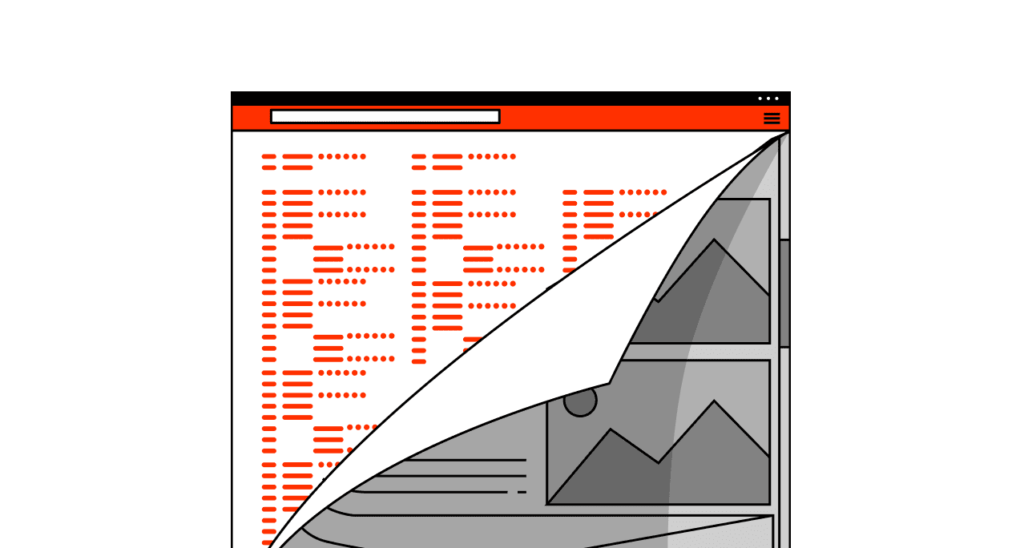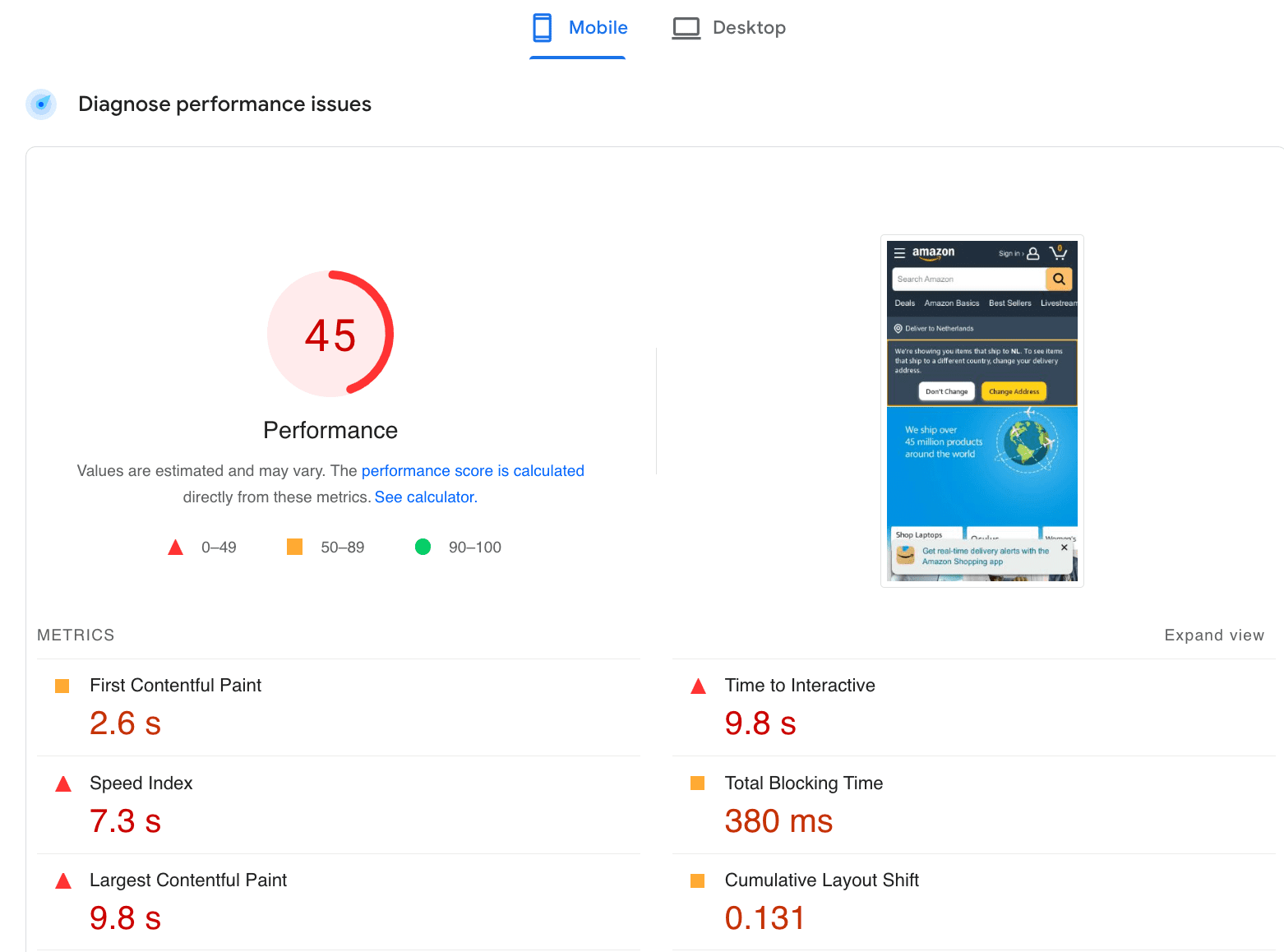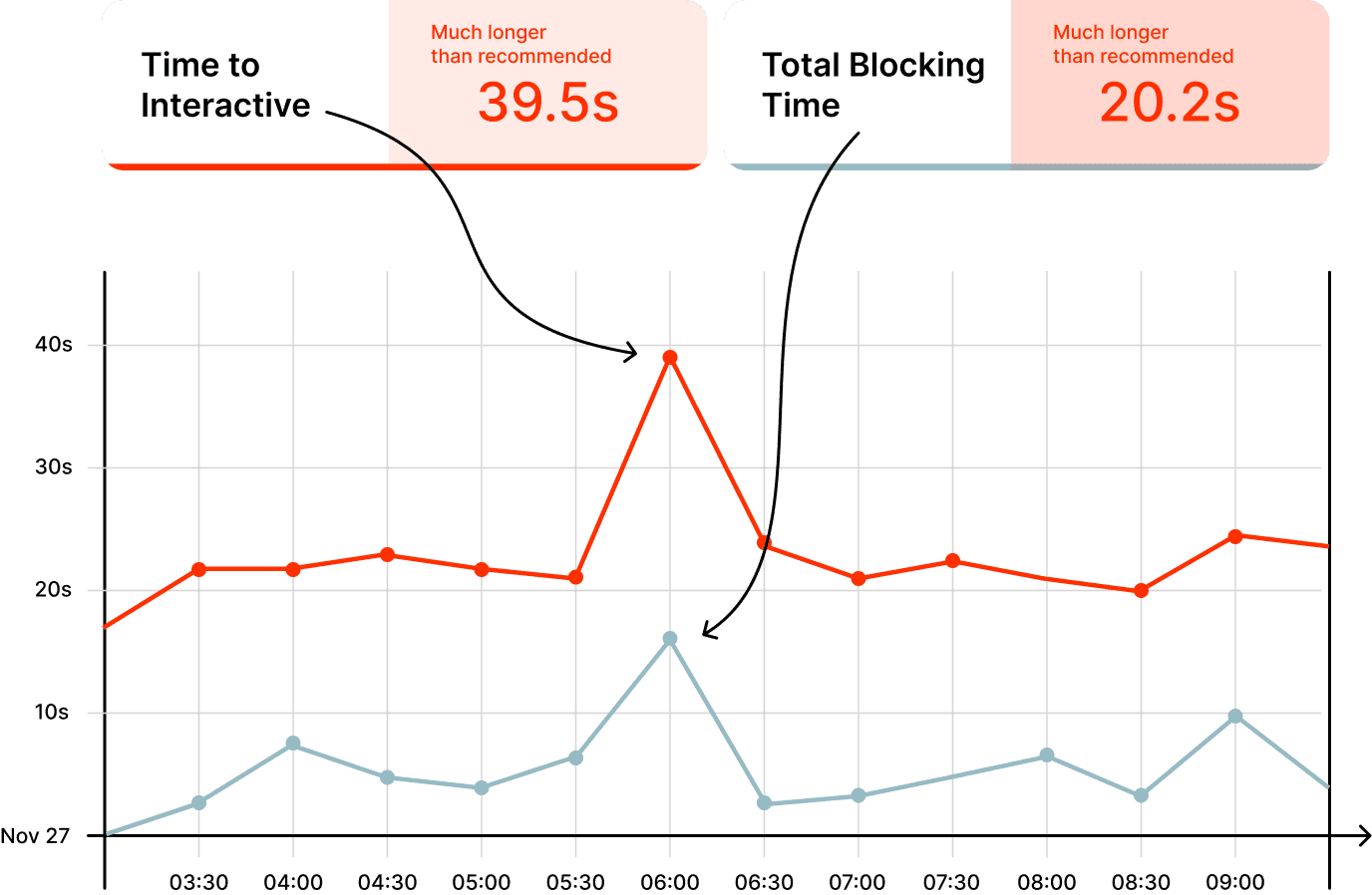Why Is Performance Testing before Black Friday a Must?
Black Friday and Cyber Monday are just around the corner, so it’s your last chance to take a look at your previous years’ business results and do the math. Together with Christmas sales, these three events make up for the peak load in Internet traffic. ECommerce and mobile apps endure the highest load and expect great profits.
In 2021, Cyber Monday garnered $10.7 billion, which makes it 1.4% less than in 2020 (falling for the first time ever!). However, it remains the biggest online shopping day of the year. Black Friday 2021 sales volume was $8.9bn, which is almost 20% more than the pandemic 2019, but down 1.3% from 2020.
The start of the pandemic had made online sales many times more important than the offline ones, and the rolled-out vaccines did not change the new habit in 2021: obviously, customers are still unwilling to shop offline, if avoidable.
Only 39.7% of the purchases on Cyber Monday were made with mobile applications. For years, the trajectory had been showing mobile on a course to surpass the 50-mark in share of online sales, but with more and more people working from home, the growth has slowed down. Consumers are using their desktops to shop and their phones to browse instead.
The eCommerce Landscape Has Shifted
Obviously, eCommerce is growing, and consumer confidence is growing, but user requirements are growing along, and that implies both web sites and apps. Website, software and mobile performance are more important now than ever.
According to Akamai, 49% of visitors expect the website to load in 2 seconds, and 30% – in 1 second. 50% of visitors would feel disappointed and visit a different website, if their expectations won’t be met, and 22% will never be back. Research by Dynatrace has shown that 75% of all mobile and tablet software users will not use a retailer’s website or app if these work slowly or are bugged.
If you don’t possess Amazon’s resources, the performance level such as pictured below can lead you to critical failures in peak hours, which in turn will result in losing revenues and clients.
This is why now is the time to satisfy your customers and make their online shopping experience convenient and flawless. Below, we’re quoting the amounts of lost revenues worldwide retrospectively, so that you could make up your mind yourselves, but trust us: crashes or delays in peak hours can make your business suffer.
Some of the craziest examples of revenues lost because of the fact that companies had not tested their systems performance beforehand happened in 2019. In 2020, we took a short break, since retailers collectively blew up the traditional start to the holiday shopping season. Instead of door-busting discounts, open doors on Thanksgiving and frenzied crowds, major players in the industry spread discounts throughout November and launched online sales events in October.
But the world has adapted to living with COVID-19 by now, and the season of 2021 brought every retail’s nightmare back to life. Office Depot went down for hours on Cyber Monday. Other major retailers such as Walmart, GameStop and Cabela’s also suffered tech woes during the peak shopping days of Cyber 5. More than 40 direct-to-consumer brands and retailers experienced crashes, freezes or slowdowns as shopping boomed starting on Thanksgiving.
Why You Can’t Afford to Skip Performance Testing
As for 2021, Adobe forecasted U.S. holiday sales online to hit $207 billion from Nov. 1 to Dec. 31, setting a new record and showing a 10 percent increase from 2020. In fact, that year turned out to be even more generous: sales reached $211.41 billion. 2021 was an undeniably outstanding year for retail sales. Imagine what 2023 can bring to your business.
Actually, Deloitte has already forecasted it for you. They expect eCommerce sales to grow by 12.8% to 14.3%, year-over-year, during the 2022-3 holiday season. This will likely result in eCommerce holiday sales reaching between $260 billion and $264 billion this season, January 23 included.
On average, a consumer in the U.S. will spend 12 full hours shopping online this holiday season. During the “golden hours” of eCommerce (7:00–11:00 pm PT on Cyber Monday), shoppers will spend nearly $3 billion online ($2.9B) in just 4 hours, 50 percent more than a typical full day in August 2021 ($1.9B). In the peak hour of Cyber Monday (8:00–9:00 pm PT), consumers will spend over $12 million every minute.
Get seated and try to count how much it will cost you if your website crashes for mere 15 minutes, or if 30% of your visitors leave the app due to unexpectedly slow response. Are you sure your website or app’s performance is better than those of, say, Costco’s?
To avoid Black Friday discontent, you simply must start fixing and preparing the performance of your website and mobile applications BEFORE the date. And don’t forget that Black Friday and Cyber Monday only start the holiday season.
Tips for Having a Successful Black Friday & Cyber Monday
The checklist we give our clients for performance testing before sales, especially such peak sales as Black Friday and Cyber Monday, includes just a few points:
Start Performance Testing Now to Avoid Losing Millions on Black Friday
The sad stories of system crashes mentioned in the beginning are not to dance a jig on some of the major companies’ bones: afterall, they are still alive. We just want to make sure you get it: if you are in eCommerce, performance testing before peak loads, sales seasons, or holidays is simply a must. This procedure is merely hygienic, and if you want to be ready, start getting ready before it’s too late.
At PFLB, we’re happy to help you test your way to Black Friday success. Don’t hesitate to contact us, if you need us. We’ll help you find an ideal solution for your company. Some of our solutions, such as PFLB Platform, can be run in 30 minutes, so you still have time.
How many users do you expect on your Black Friday sales? Are you sure that your website will handle the load?
We highly recommend you test your website’s maximal load before starting a marketing campaign or placement on aggregators.
Related insights in blog articles
Why Load Testing Is Essential for Ecommerce Businesses

The success of 26 million online retailers depends on the page load time. It significantly impacts the profitability of online services and sales, as customers don’t want to wait over three seconds to make a purchase. To ensure the desired speed, load testing is widely applied. Common Ecommerce Problems That Can Be Solved with Load […]
Everything You Should Know about Performance Testing of Microservices
About 85% of enterprise businesses use microservices. In this article, we will cover the primary specifics of microservices, explain why they need performance testing, and highlight how to make this process efficient. Microservices in a Few Words Microservices (or microservices architecture) refers to a methodology for developing and deploying applications. This approach separates an extensive […]
PFLB is Now SOC2 Compliant
The PFLB team is happy to share the good news. We have passed the SOC 2 compliance accreditation. It means we can assure our clients that our cooperation will be entirely secure. What Is SOC? Introduced by the American Institute of CPAs (AICPA), SOC, or Service Organization Control, is a cybersecurity series of reports made […]
How Do Businesses Benefit from Frontend Performance Testing?

Crucial bottlenecks are usually backend-related. That’s why backend performance testing is generally regarded as a must. However, only 1% of companies perform frontend performance testing. They don’t consider that to achieve the best business results, one should combine the two types. Let’s prove it. We will define their differences, emphasize the importance of conducting backend […]
Be the first one to know
We’ll send you a monthly e-mail with all the useful insights that we will have found and analyzed
People love to read
Explore the most popular articles we’ve written so far
- Android vs iOS App Performance Testing: What’s the Difference? Dec 9, 2022
- How to Save Money on Performance Testing? Dec 5, 2022
- Performance Testing: What It Is, and Why You Need It Oct 7, 2021
- Cloud-based Application Testing: Features & Types Apr 15, 2020

